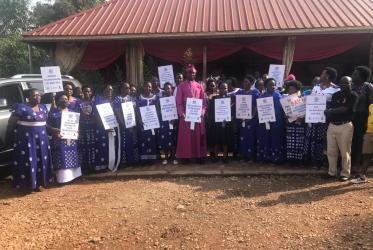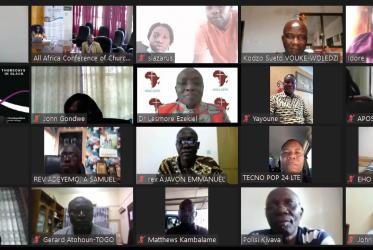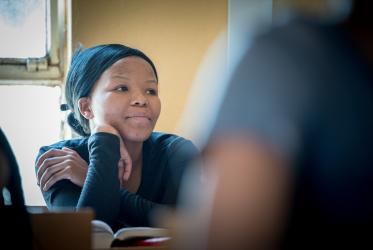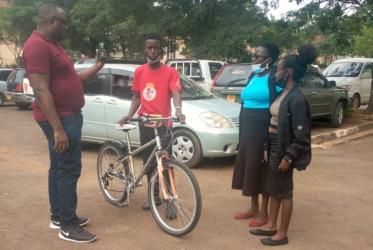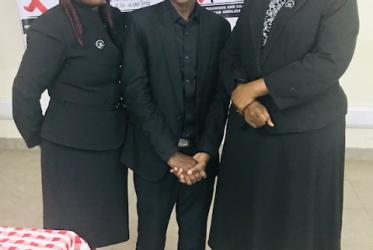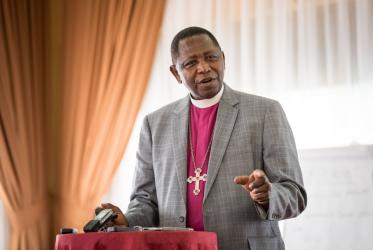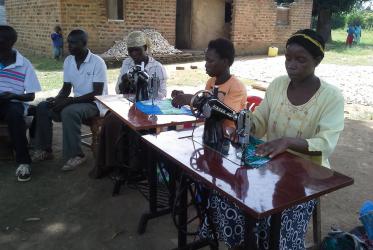Displaying 1 - 20 of 25
African Churches mark International Women’s Day
09 March 2021
Youth leaders: “We will stop at nothing” to end HIV and violence
17 October 2019
WCC treatment manuals address HIV challenges in Uganda
02 August 2019
Ugandan Mothers’ Union leader helps overcome HIV
31 October 2017
“Facing the storm of HIV, we can move together, be agents of change”
06 September 2017
East African communities discuss disability, theology
17 November 2016
